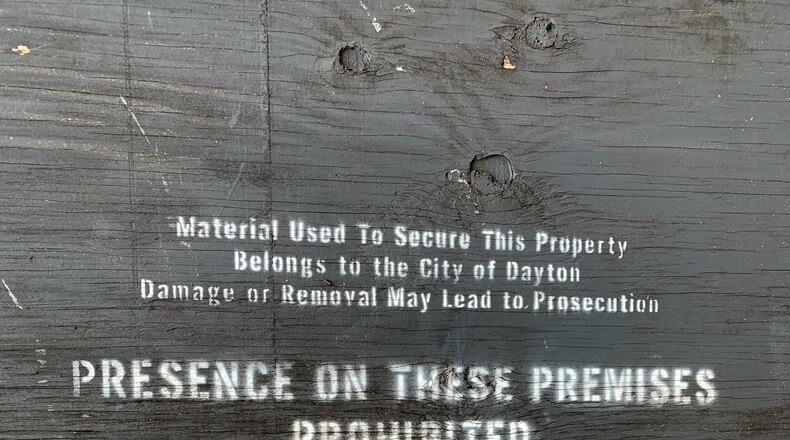Now, the Dayton Daily News and our reporter Josh Sweigart have uncovered CARES Act irregularities right here in the Miami Valley. The newspaper’s investigation showed rental assistance checks went to landlords of uninhabitable properties, and landlords of 10 rental units have returned or say they will give back nearly $101,000 they received, because of this newspaper’s reporting.
Here’s what’s more concerning. The finding could be just the tip of the iceberg because the newspaper only looked at a few dozen of the largest local recipients of funds from the $2.2. trillion Coronavirus Aid, Relief, and Economic Security Act that the Trump administration signed into law on March 27, 2020.
Credit: Josh Sweigart
Credit: Josh Sweigart
There’s an untold number of unanswered questions because Montgomery County, like most other government agencies that received funding. lacked a robust process to ensure the money goes where it’s supposed to. The county received $92.7 million in CARES Act funds and allocated $5 million for rental assistance for nearly 1,600 households.
It’s now clear that not all of the money went to the right people. Too many people have suffered — and continue to suffer — during the pandemic for cash to go into the wrong hands.
It is true that the federal government rushed money to those who needed it, and that’s a good thing. So it makes sense that not all safeguards would be in place. But it’s also true that we’ve had more than a year to get it right and we haven’t. That’s a flaw in the system that should have been addressed long ago.
To its credit, Montgomery County and the group it paid $261,000 to administer the program — the Miami Valley Community Action Partnership — haven’t shied away from these issues. The county even credits the Dayton Daily News with bringing the issues to light.
“We believe your reporting could have resulted in the identification of possible fraudulent recipients of CARES ACT dollars,” Deb Decker, a spokeswoman for Montgomery County wrote in an email.
The county, on Wednesday, announced more stringent requirements for the next $8 million round of rental assistance by beefing up oversight and revising the application process to require more information to ensure the money goes to the right people. The county will also make clear that providing false information could lead to penalties that include jail time.
That’s a good step. We can’t leave it up to the DOJ to police all of this. They’re going after the big fish. That means the county and other local government agencies must redouble their efforts and carefully examine their accounts to make sure the money is going into the right hands.
But that still doesn’t excuse the issues with the first round of money. If, as Montgomery County Administrator Michael Colbert told us, applicants could have simply made a mistake on their applications, wouldn’t a more thorough examination of the paperwork have caught at least some of those errors? While we should get money to people as fast as we can, we cannot do that at the expense of knowing, as reasonably as we can, that those funds are helping those who need it.
So while the county is looking ahead to the new program, it should also look back and take these reasonable steps.
First, with the help of the Miami Valley Community Action Partnership, audit the entire first round of rental assistance. Find out whether other people received money when they should not have.
Second, audit the entire $92.7 million CARES assistant program to ensure there aren’t similar irregularities in other areas. CARES also provided funding for farmers, business owners and nonprofits, to name a few.
Lastly, let the public know what you’ve found and what you’re doing, Montgomery County has been transparent during this entire process, and should be applauded for its efforts so far. But as we see, we need to do more.
Whether by mistake or malfeasance, if there are problems with a few landlords, there could very well be issues with many more.
Taxpayer money — and trust — is at stake.

